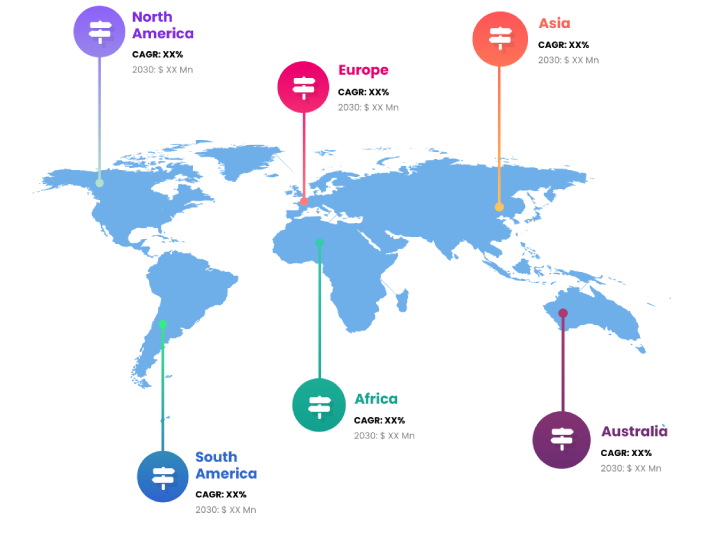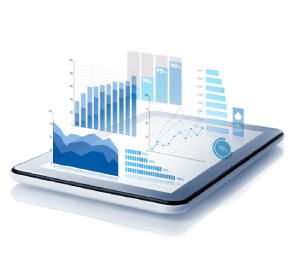
The global market growth is primarily attributed to factors such as the rising adoption of SaaS solutions owing to the functional ability of cloud computing to improve the business performance of enterprises and the increasing migration of enterprises to the cloud ecosystem for reducing operational costs and improving security. Key trends that are driving the enterprise resource planning (ERP) market include the rapid incorporation of artificial intelligence (AI) and machine learning (ML) technologies into the development of cloud-based ERP solutions, as well as the rising need to deploy such solutions, which include advanced analytics features and identify probable issues like delays and disruptions.
When it comes to using cutting-edge technologies to spur organizational creativity, cloud ERP is in a league of its own. Data analytics, automation, and predictive insights are all improved by its incorporation with state-of-the-art technologies like AI and ML. With IoT (Internet of Things) connectivity, equipment and assets can be monitored in real time, facilitating better maintenance and resource allocation. The combination of blockchain technology and the availability to operate remotely from a mobile device ensures adaptability. The flexibility and scalability of cloud ERP is enhanced by its ability to readily integrate with other cloud services and application programming interfaces. Simply put, cloud ERP gives organizations the nimbleness to take advantage of cutting-edge technologies, improving their ability to maintain a competitive edge, base decisions on empirical evidence, and respond quickly to shifting market conditions.
Furthermore, Human Capital Management (HCM), Human Resource Management System (HRMS), and Material Requirements Planning (MRP) are critical components of the cloud ERP market, each delivering unique benefits to customers. Manufacturing resource planning (MRP) helps factories and warehouses run more smoothly by predicting material needs with more accuracy, cutting down on waste, and keeping production schedules on track. Human capital management (HCM) improves talent retention and productivity by handling payroll, employee benefits, and performance reviews. On the other hand, human resource management software (HRMS) is tailored to handle HR-specific activities. These ERP solutions streamline business operations by providing real-time data, automating important procedures, and improving resource allocation. Users gain from higher cost efficiency, reduced human error, and increased workforce productivity, eventually leading to better decision-making, competitive advantage, and organizational growth in the dynamic cloud ERP landscape.
Moreover, cloud ERP providers prioritize data security, frequently incorporating tough safeguards such as encryption, multi-factor authentication, and frequent security reviews. This comprehensive safety structure offers firms additional protection that may be challenging to supply internally, lowering risks associated to data breaches and cyber attacks. Over the forecast period, this aspect is projected to drive the market, creating various expansion possibilities for the industry's stakeholders.
A number of end-use industries, like construction, have found cloud ERP to be a game-changer because it can handle the unique challenges of project-based work. By integrating financial data with project activities, cloud ERP software can assist construction firms keep project costs under control. Another element contributing to the expansion of the industry is the improvement of real-time monitoring of resource utilization, budget allocation, and expenditures. throughout May 2023, for instance, IFS, a cloud software provider, and NCC, a construction company, established a cooperation to boost productivity and efficiency throughout NCC's operations throughout the four Nordic nations. For the. The software will improve NCC's operational visibility, efficiency, and accounting processes. NCC Company will implement IFS Cloud Enterprise Asset Management (EAM), and IFS Cloud ERP will provide back-end support for NCC's 7,000 employees.
The solutions subsegment of the cloud ERP market is expected to grow at a rapid clip over the course of the forecast period. Cloud-based solutions are becoming increasingly popular because of their adaptability, low cost, and ease of deployment. Common cloud ERP solutions include single-tenant SaaS, hybrid ERP, multi-tenant SaaS, publicly hosted cloud ERP, and privately hosted cloud ERP. A similar paradigm shift from on-premise to cloud would boost the cloud enterprise resource planning (ERP) market significantly throughout the forecasted time period. To efficiently manage the ever-increasing data volumes and evaluate potential industry trends, many businesses are swiftly adopting big data analytics and cloud-based services.
Report Coverage
Global Cloud ERP research report categorizes the market for global based on various segments and regions, forecasts revenue growth, and analyzes trends in each submarket. Global Cloud ERP report analyses the key growth drivers, opportunities, and challenges influencing the global market. Recent market developments and Cloud ERP competitive strategies such as expansion, product launch and development, partnership, merger, and acquisition have been included to draw the competitive landscape in the market. The report strategically identifies and profiles the key Cloud ERP market players and analyses their core competencies in each global market sub-segments.
| REPORT ATTRIBUTES | DETAILS |
|---|---|
| Study Period | 2017-2030 |
| Base Year | 2022 |
| Forecast Period | 2022-2030 |
| Historical Period | 2017-2021 |
| Unit | Value (USD Billion) |
| Key Companies Profiled | ERP market vendors are Oracle (US), Microsoft (US), SAP (Germany), Workday (US), Infor (US), IFS (Sweden), Plex Systems (US), Epicor Software Corporation (US), Sage Group (UK), Ramco Systems (India), QAD (US), Tally Solutions (India), Odoo (Belgium), SYSPRO (South Africa), Tyler Technologies (US). |
| Segments Covered | • By Product |
| Customization Scope | Free report customization (equivalent to up to 3 analyst working days) with purchase. Addition or alteration to country, regional & segment scope |
Key Points Covered in the Report
- Market Revenue of Cloud ERP Market from 2021 to 2030.
- Market Forecast for Cloud ERP Market from 2021 to 2030.
- Regional Market Share and Revenue from 2021 to 2030.
- Country Market share within region from 2021 to 2030.
- Key Type and Application Revenue and forecast.
- Company Market Share Analysis, Cloud ERP competitive scenario, ranking, and detailed company
profiles. - Market driver, restraints, and detailed COVID-19 impact on Cloud ERP
Market
Competitive Environment:
The research provides an accurate study of the major organisations and companies operating in the global Cloud ERP market, along with a comparative evaluation based on their product portfolios, corporate summaries, geographic reach, business plans, Cloud ERP market shares in specific segments, and SWOT analyses. A detailed analysis of the firms' recent news and developments, such as product development, inventions, joint ventures, partnerships, mergers and acquisitions, strategic alliances, and other activities, is also included in the study. This makes it possible to assess the level of market competition as a whole.
List of Major Market Participants
ERP market vendors are Oracle (US), Microsoft (US), SAP (Germany), Workday (US), Infor (US), IFS (Sweden), Plex Systems (US), Epicor Software Corporation (US), Sage Group (UK), Ramco Systems (India), QAD (US), Tally Solutions (India), Odoo (Belgium), SYSPRO (South Africa), Tyler Technologies (US).
Primary Target Market
- Market Players of Cloud ERP
- Investors
- End-users
- Government Authorities
- Consulting And Research Firm
- Venture capitalists
- Third-party knowledge providers
- Value-Added Resellers (VARs)
Market Segment:
This study forecasts global, regional, and country revenue from 2019 to 2030. INFINITIVE DATA EXPERT has segmented the global Cloud ERP market based on the below-mentioned segments:
Global Cloud ERP Market, By Component
Solutions
Services
Global Cloud ERP market, By Business Function
Finance & Accounting
Sales & Marketing
Operations
Human Resources
Global Cloud ERP Market, By Vertical
BFSI
IT & Telecom
Government & Defense
Retail
Manufacturing
Education
Healthcare & Life Sciences
Other Verticals
Global Cloud ERP market, Regional Analysis
- Europe: Germany, Uk, France, Italy, Spain, Russia, Rest of Europe
- The Asia Pacific: China,Japan,India,South Korea,Australia,Rest of Asia Pacific
- South America: Brazil, Argentina, Rest of South America
- Middle East & Africa: UAE, Saudi Arabia, Qatar, South Africa, Rest of Middle East & Africa
You will get in-depth and extensive cloud erp market market research and competitor analysis for your business to help you develop more profound insights into the cloud erp market Market.
Through INFINITIVE Data Expert is a professional Market Research services, I will identify the cloud erp market market size, demand & opportunities, growth rate, and target audience with a comprehensive analysis of your competitors.



